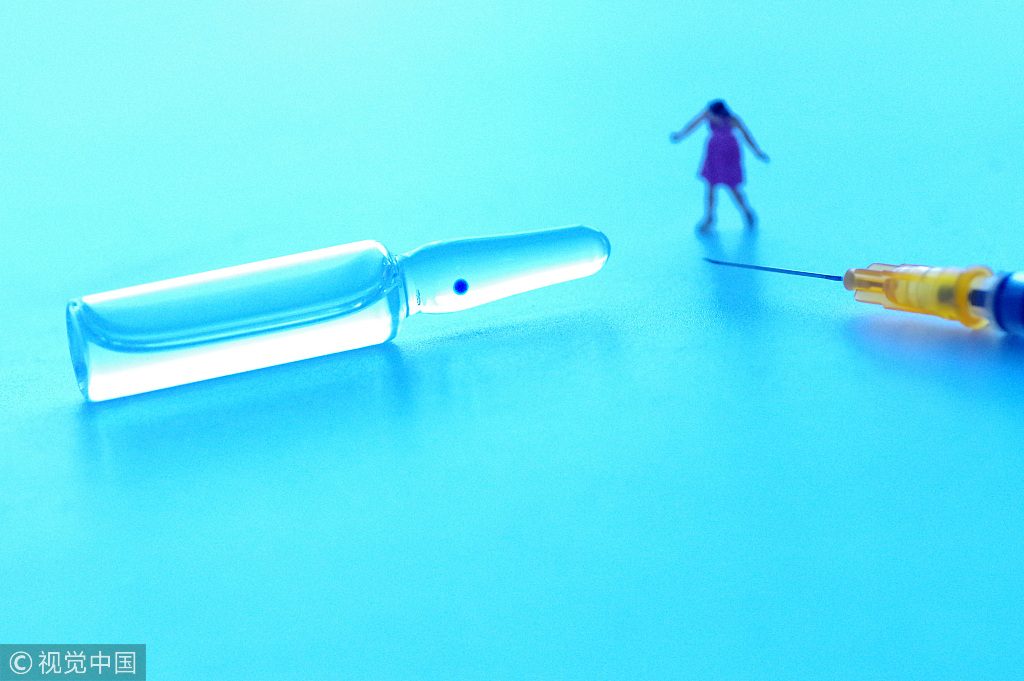Merck Sharp & Dohme Corp to augment HPV vaccine supplies to China


The supply of much-sought-after human papillomavirus or HPV vaccine to China will be "remarkably "increased within this year to meet unfulfilled demand in the Chinese market, executives of Merck Sharp & Dohme Corp, a US-based pharmaceutical company, said.
The firm is known as Merck& Co Inc in the United States and Canada. Merck has been proactively cooperating with "internal and external partners", and has adopted a range of strategies to increase HPV vaccine supplies.
It will leverage its global distribution network and expanding production to serve the Chinese market better, according to its China branch.
Merck also said it will continue its efforts in raising public awareness about HPV-related disease prevention, and will keep promoting knowledge about HPV vaccines, as well as providing professional training to medical persons in China, especially those in underprivileged areas.
Internationally, HPV vaccines are among the top three major vaccines by market. In 2016, sales of Merck&Co's HPV vaccines reached $2.17 billion in the US, according to a report published last year by the Guosen Securities Economic Research Institute.
In many other countries that include HPV vaccines in government-funded vaccination programs, the major consumers of the vaccines are a vast number of teenagers, but not in China, where the major consumers are young women, according to the report.
It predicted the 9-valent, protecting against nine types of HPV, will be most popular, because it is relatively more economical.
It also estimated that in China's developed areas, less than 10 percent of females falling into the age group recommended for anti-HPV vaccination will have the vaccines, with reference to the situation in Japan, where people's lifestyles are similar to those in Chinese big cities, and the vaccines are not on public vaccination programs either.
Merck's 9-valent HPV vaccine was introduced to the Chinese mainland in May 2018. Ever since, there has been media coverage that demand for it outstrips supply. Shenzhen health authorities in Guangdong province even adopted a lottery system last year to decide who would get the vaccine.
Shortages of all the types of HPV vaccines are expected throughout 2020 in China because of the huge existing demand that cannot be met in a short period, according to a report published earlier this year by Horizon Insights, a consultancy based in Shanghai.
About 300 million people on the Chinese mainland belong to the recommended age group for 2-valent HPV vaccine, 130 million for the 4-valent, and 90 million for the 9-valent, it said.
The Horizon report estimated that market value for the 2-, 4-and 9-valent vaccines would reach 1 billion yuan ($144.6 million), 7.2 billion yuan and 10 billion yuan respectively at peak time.
Chen Qiulin, deputy director of the health industry development research center of the Chinese Academy of Social Sciences, said the severe HPV vaccine demand-supply imbalance, especially for the 9-valent, is mainly caused by the huge demand accumulated in all the past years before the vaccines were available in China.
The country approved the 2-valent HPV vaccine in 2016, followed by the 4-valent in 2017, and the 9-valent in 2018, while the world's first HPV vaccine, the 4-valent, was approved in the US in 2006. The 2-valent vaccine is from GlaxoSmithKline, and the 4-and 9-valent vaccines are from Merck.
He said the booming demand is due to people's fear of contracting HPV-related diseases, especially cervical cancer, as well as Chinese people's increasing ability to pay for such nonrigid healthcare services due to higher incomes and consumption upgrade.
Once people could get the vaccination on a regular basis, the demand-supply imbalance will be gradually eliminated, he said.
Besides, domestic vaccines are also under development.
More than a dozen of Chinese pharmaceutical companies are developing their own version of HPV vaccines, which range from 2-valent to 14-valent. Some of the companies have started phase-3 clinical trials while some have just received approval for clinical trials, according to the Horizon Insights report.
In China, cervical cancer, related with persistent infection of high-risk HPVs, is one of the most common and lethal cancers among women.
Apart from cervical cancer, HPV infection is also closely related to 90 percent of anal cancers, 40 percent of vulvar or vaginal cancer, and 12 percent of head and neck cancer, according to an article on DXY, a leading online healthcare platform in China.
The 2-valent vaccine is recommended for vaccination to females aged 9 to 45 on the Chinese mainland, and the 4-valent is for females aged 20 to 45. The 9-valent is for females aged 16 to 26. All the three types of vaccines require three shots over a span of six months.



































